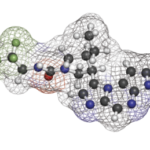
Maxx-Studio / shutterstock.com
ATLANTA—New drug approvals, new and expanded drug indications, and important safety and other updates relevant for rheumatologists were presented by three physicians from the U.S. Food & Drug Administration (FDA) on Nov. 11 at the 2019 ACR/ARP Annual Meeting.
New JAK Inhibitor Approved for RA
On Aug. 16, 2019, the FDA approved upadacitinib (Rinvoq), an oral Janus kinase (JAK) 1 selective inhibitor, for the treatment of moderate to severe active rheumatoid arthritis (RA) in patients who have an inadequate response to methotrexate. The approved dose for upadacitinib is 15 mg taken once daily.
“The assessment of the efficacy and safety of upadacitinib is primarily derived from five phase 3 studies that were designed to assess once-daily upadacitinib dosing as monotherapy and as combination therapy with methotrexate or other conventional disease-modifying anti-rheumatic drugs [DMARDs],” said Rachel L. Glaser, MD, a rheumatologist and clinical team leader in the FDA’s Division of Pulmonary, Allergy and Rheumatology Products (DPARP). “The studies enrolled a broad population of patients with moderate to severe active RA who were either naive to methotrexate, had an inadequate response or intolerance to methotrexate or conventional DMARDs, or had an inadequate response or intolerance to biologic DMARDs.”
According to a summary on the FDA’s website, the trials were conducted at many global sites and included 3,141 patients with active RA, including 2,495 women and 646 men.1 Patients who were treated with upadacitinib, either alone or in combination with DMARDs, achieved higher ACR20 response rates in all five trials than patients on methotrexate monotherapy or placebo at the primary efficacy time point. Similar trends were observed for ACR50 and ACR70 responses, as well as for DAS-28/CRP of less than 2.6, said Dr. Glaser. Efficacy was also established for improvement in physical function as measured by HAQ-DI. Radiographic progression was evaluated in two studies. In both, upadacitinib at 15 mg once daily inhibited the progression of structural joint damage compared with the control groups.
“The safety profile of upadacitinib is generally compatible with that of other JAK inhibitors and other immunosuppressants approved for RA, including risk of serious infections, malignancies and thrombosis described in a boxed warning in the upadacitinib prescribing information,” she said.
Other safety warnings include gastrointestinal perforations and laboratory abnormalities, such as neutropenia and anemia, which are noted for other JAK inhibitors, as well as one for embryo-fetal toxicity. “Based on animal studies, upadacitinib may cause fetal harm,” said Dr. Glaser. “Due to these findings, [women] of reproductive potential should be advised of the risk and the need for use of effective contraception.”
New Indications for Other Drugs
Drugs with new indications approved in 2019 include:
- Nintedanib (Ofev), an oral, small-molecule, tyrosine kinase inhibitor, was approved in September for slowing the rate of decline in pulmonary function in patients with systemic sclerosis-associated interstitial lung disease (SSc-ILD);
- Ixekizumab (Taltz), an interleukin (IL) 17-A inhibitor, was approved in August for the treatment of active ankylosing spondylitis;
- Apremilast (Otezla), a phosphodiesterase-4 inhibitor, was approved in July for adults with oral ulcers associated with Behçet’s disease; and
- Certolizumab pegol (Cimzia), a tumor necrosis factor (TNF) inhibitor, was approved in March for the treatment of active, non-radiographic axial spondyloarthritis with objective signs of inflammation.
In 2019, the FDA also approved expanded pediatric indications for two medications:
- Intravenous belimumab (Benlysta), a BLyS-specific inhibitor, was approved for pediatric patients with systemic lupus erythematosus (SLE) from ages 5–17 years; and
- Rituximab (Rituxan, MabThera), a CD20-directed cytolytic antibody, was approved for pediatric patients with granulomatosis with polyangiitis (GPA)/microscopic polyangiitis (MPA) ages 2 and older, and as follow-



